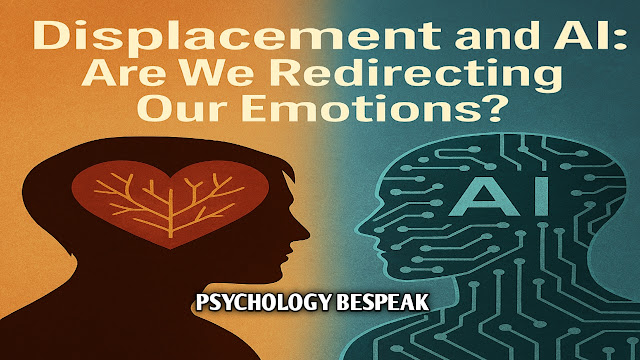MODERN APPROACHES TO PSYCHOPATHOLOGY
One of the first representative figures of
the modern somatogenic paradigm was Wilhelm Griesinger (1817-68), a German
psychiatrist who argued that brain pathology was the cause of all mental
disorders. Around the same time, Emil Kraepelin (1856-1926) and Eugen Bleuler
(1898-1927) developed similar theories, because of the rapid developments
in anatomy, physiology, neurology, and chemistry that were then taking place.
Kraepelin’s main contribution was the first modern classification of symptoms,
labeling and describing different psychological disorders. An important
distinction was made between manic depressive disorders and dementia praecox, later
referred to as schizophrenia. The Austrian physician Franz Anton Mesmer (1734-1815), believed
psychological disorders to be the expression of psychical rather than physical factors.
He also developed a hypnotic method called mesmerism.
1.
Psychoanalysis and psychodynamic theories
In the early 1900s, Sigmund Freud’s
theory of psychoanalysis ushered in
psychological interpretations of disordered behaviour. Although psychodynamic theories
developed in the context of abnormal behaviour and mental disorders, they posit
that all behaviours (normal and abnormal) are influenced by unconscious processes. Thus psychoanalysis has been used to understand
human behaviour in general and applied to a wide range of areas such as
philosophy, literature, and sociology, making Freud the most famous
psychologist of all times (Haggbloom et al., 2002). Psychodynamic theories
of abnormal behaviour were soon joined by other models based on behavioural, cognitive,
and humanistic conceptions.
2.Behaviorism
In the first half of the twentieth
century, while psychoanalysis was gaining momentum in Europe, a very different
psychological explanation for mental disorders developed within the behaviourist
movement. Behaviourism in its
purest and more radical form denied the existence of any internal mental
processes and explained human behaviour, including psychological disorders, in
terms of conditioning. Lightner Witmer
(1867-1956) imported to the United States the techniques he learned
in Germany from Wilhelm
Wundt (1832-1920), one of the fathers of experimental psychology. Witmer
inaugurated the first “experimental
clinic” in the University of Pennsylvania, dedicated to the study of
mental deficiencies in children. Meanwhile, Ivan Pavlov (1849-1936) in
Russia and John
Watson (1878-1958) in America applied the principles of classic
conditioning to the study of phobias. A variation of classical behaviourism was
later introduced by Thorndike (1874-1949) and Skinner (1904-90), who noticed
that rewarding desirable behaviours was more effective than punishing undesirable
ones. This effect/method was referred to as operant conditioning. Despite the controversial ethical
implications associated with behaviorism, it has shown to be effective with
regard to the treatment of anxiety disorders and phobias, and is still used widely
today.
3.Cognitive Approaches
With the decay of behaviorism, a new
wave of research emerged in the 1960s and 1970s that attempted to understand
the internal mental processes, These processes or cognitions were at the
center of the cognitive revolution in psychology and represent another
important contribution to our understanding of mental illness. Bandura (1986),
a leading figure of the cognitive movement, conceptualized this idea in terms
of self-efficacy or
individuals’ belief about the extent to which they can successfully execute the
appropriate behaviors to control and influence important life events. Ellis’s (1973)
rational emotive therapy,
which conceptualizes illness as the result of irrational negative beliefs about
oneself and the world. These various conceptions focus on different classes of
causal factors and help capture the complex determinants of abnormal behaviour.
4.Biological Approaches
Broadly speaking, biological approaches
can be divided into neuroanatomy
or those dealing with the structure of the brain, and neurophysiology
or those dealing with the processes or functions of the brain.
In combination, neuroanatomy and neurophysiology represent the
multidisciplinary field of neuroscience, which is rapidly developing in and
outside psychopathology. The most common biological studies in psychopathology investigate
the biochemical correlates of mental illness, notably the role of neurotransmitters,
which are chemical messengers that carry information between neurons and other
cells. Imbalances in several of the at least 100 types of neurotransmitters are
known to be associated with psychological disorders. For example, serotonin
affects emotion and impulse regulation, such as levels of aggression.




Comments
Post a Comment